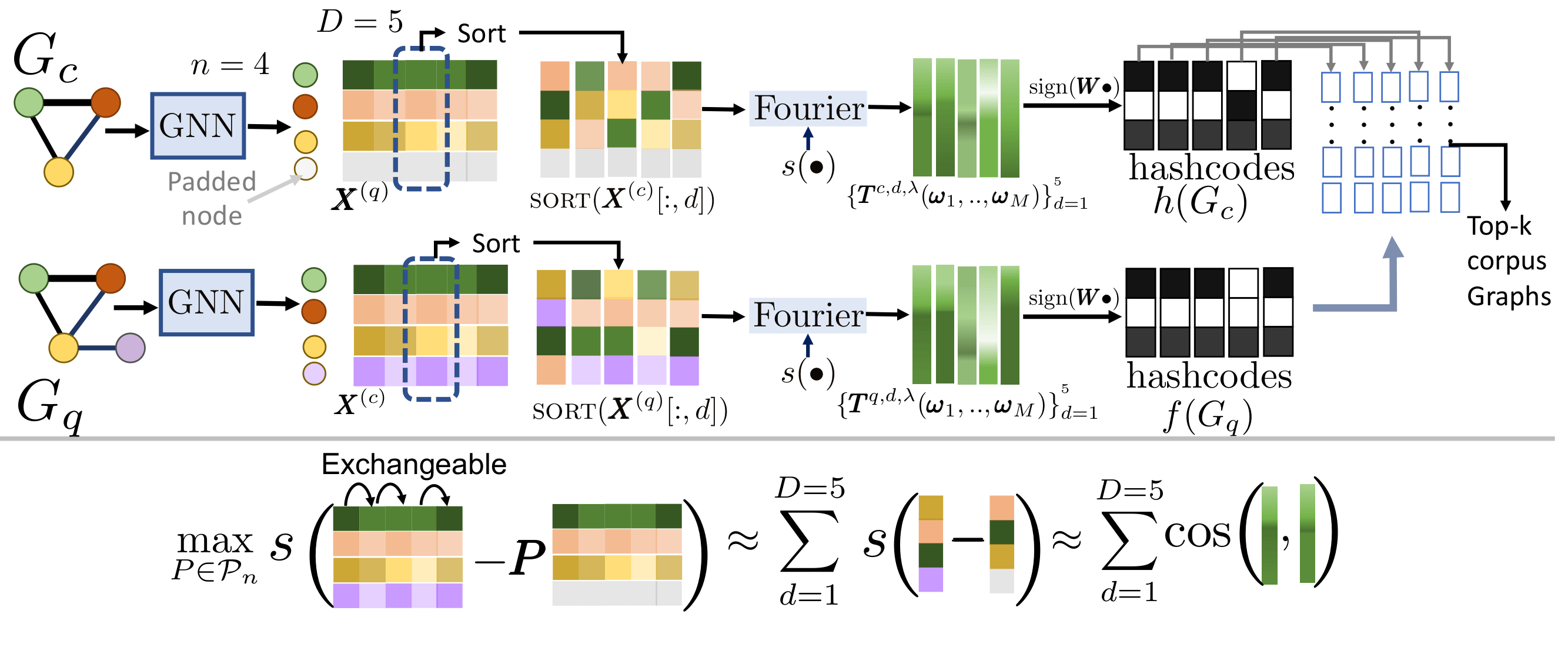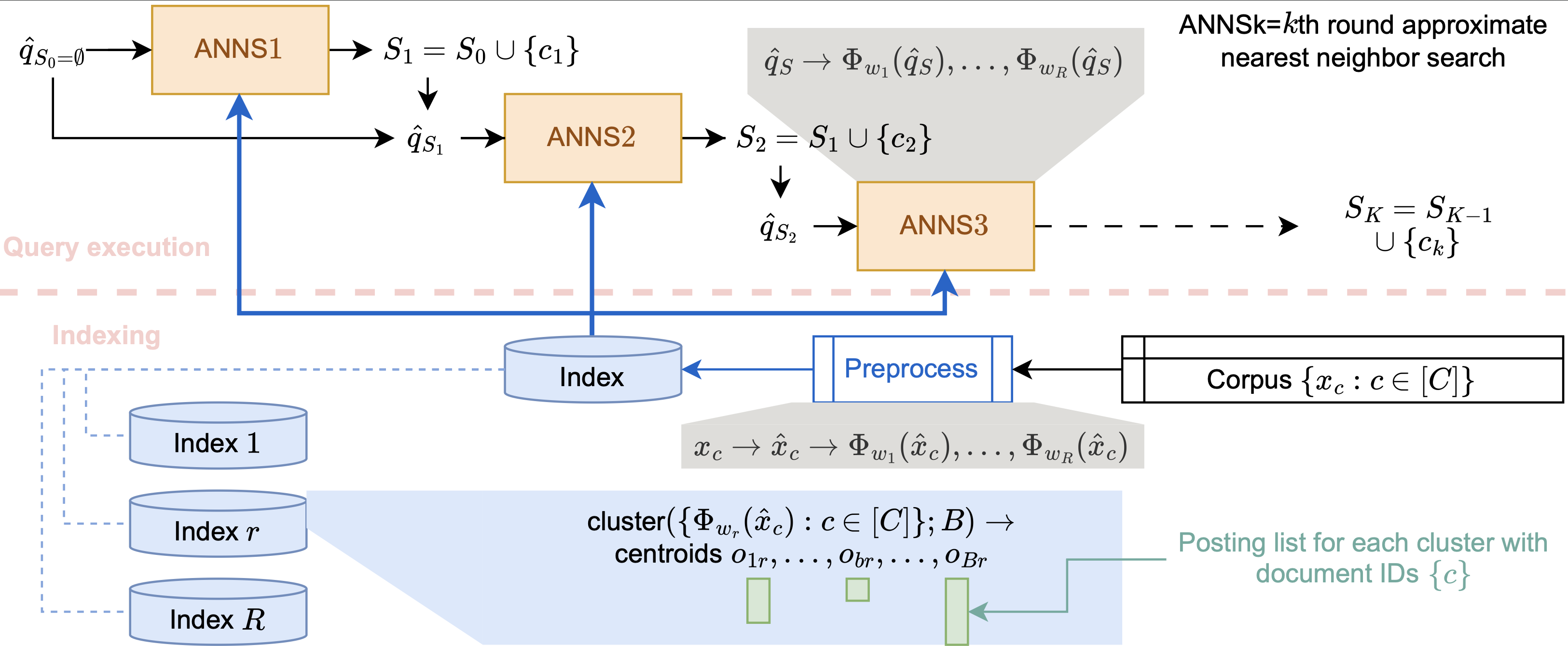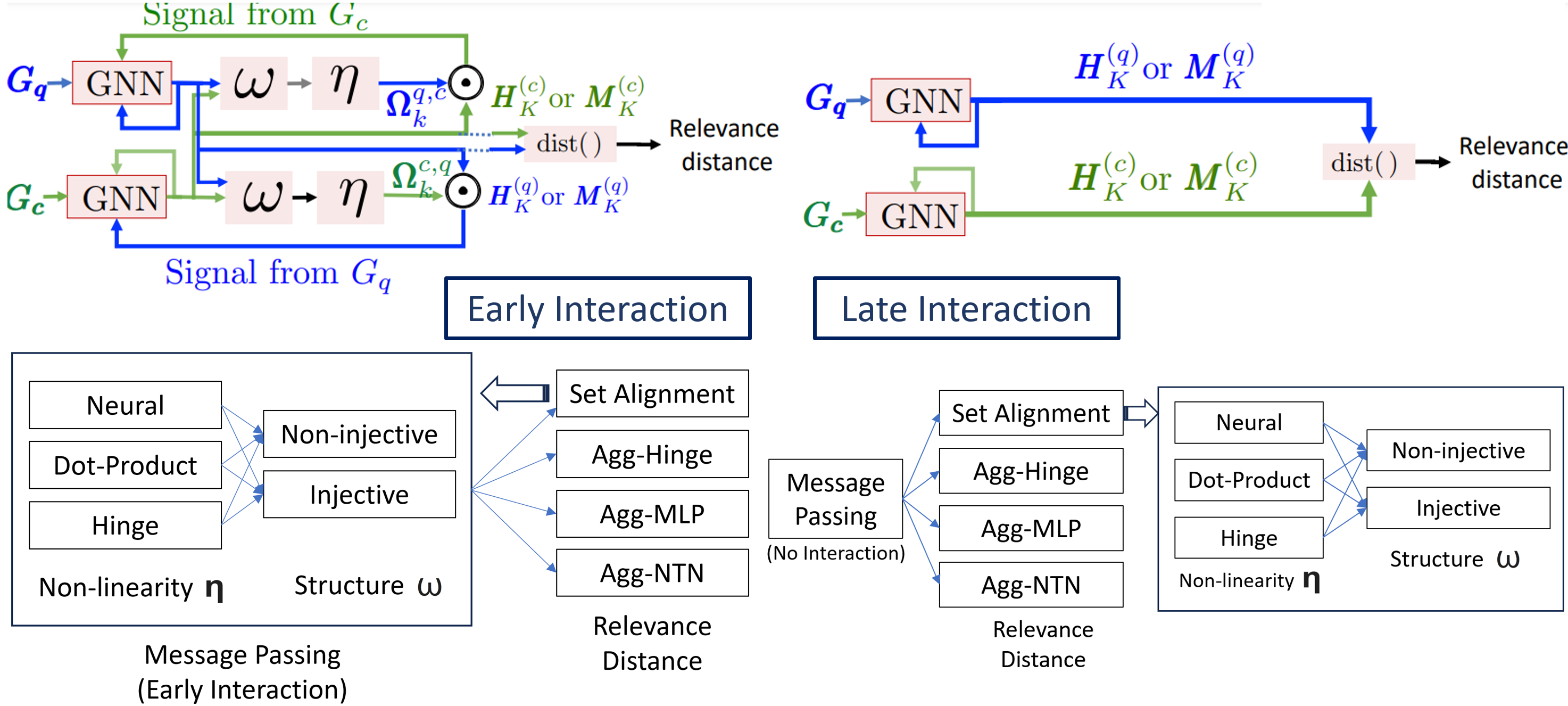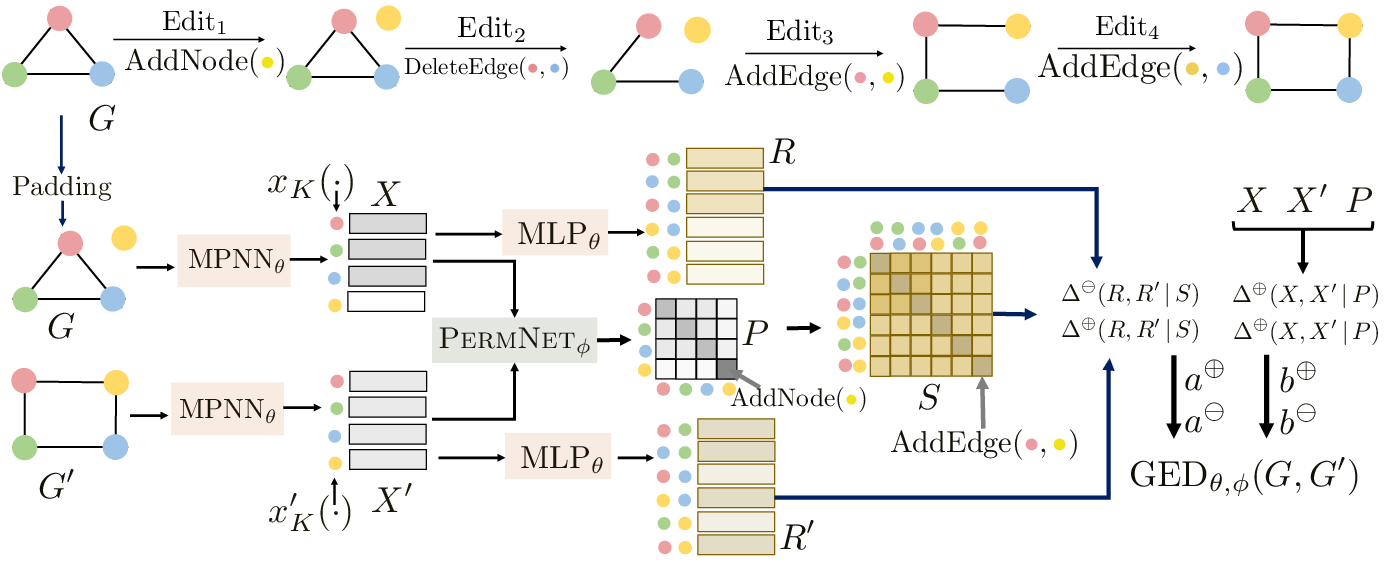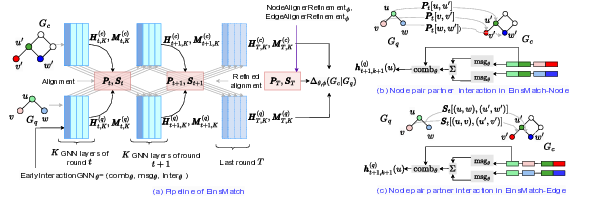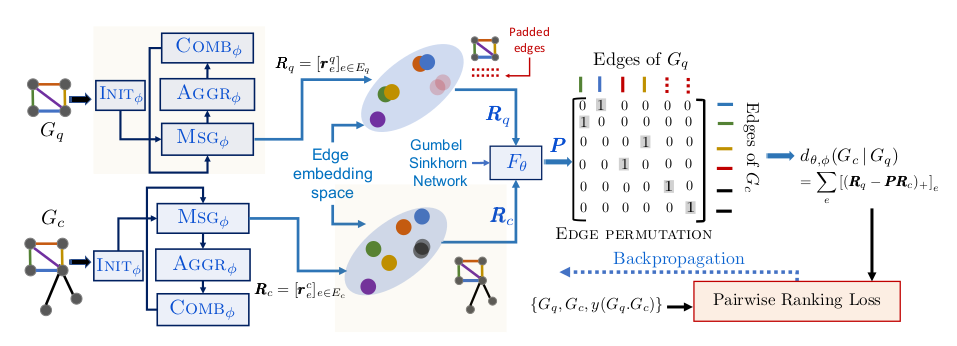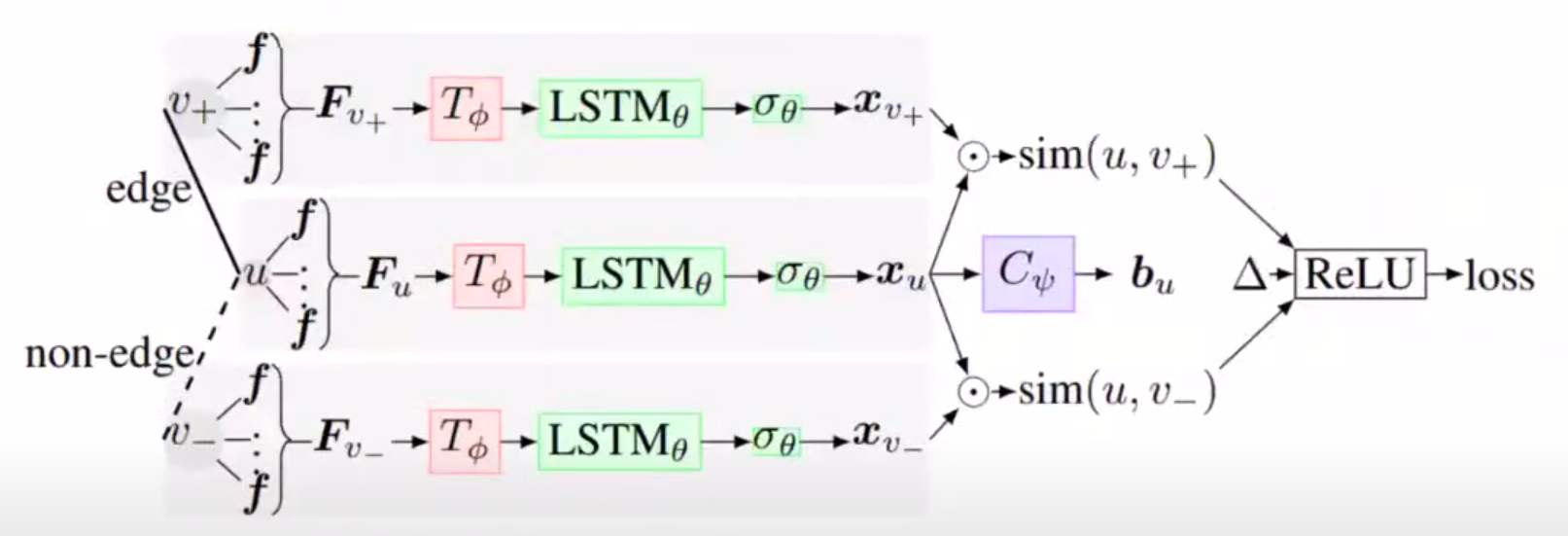Publications
Hourglass Persistence for Graphs, Simplices, and Cells
Mattie Ji*, Indradyumna Roy*, Vikas K Garg
ICLR 2026
Unlike persistent homology, which observes topology only through growing subgraphs, we study how topology evolves under graph contractions. We develop a systematic expressivity theory, certified by minimal witness graphs and constructive separation proofs, together with practical algorithms.
Exchangeability of GNN Representations with Applications to Graph Retrieval
Kartik Nair, Indradyumna Roy, Soumen Chakrabarti, Anirban Dasgupta, Abir De
ICLR 2026
We identify exchangeability as a fundamental property of neural representations under common design choices. Node embeddings in standard GNNs inherit this symmetry, enabling order-statistic approximations of general (possibly asymmetric) transportation-based graph similarities and a generalized LSH framework for subgraph matching and graph edit distance.
A Dense Subset Index for Collective Query Coverage
Kartik Nair, Pritish Chakraborty, Atharva Abhijit Tambat, Indradyumna Roy, Soumen Chakrabarti, Anirban Dasgupta, Abir De
ICLR 2026
Modern retrieval setups often require multiple documents to collaborate for query coverage. We formulate this as a submodular optimization objective admitting a greedy algorithm, and reinterpret its marginal-gain maximization as a retrieval task. This leads to random-projection–based approximate data structures that enable scalable, sublinear-time collective retrieval with strong theoretical guarantees.
Contextual Tokenization for Graph Inverted Indices
Pritish Chakraborty, Indradyumna Roy, Soumen Chakrabarti, Abir De
NeurIPS 2025
CoRGII bridges the gap between neural and symbolic retrieval by combining the semantic fidelity of graph embeddings with the efficiency of inverted indices. It converts continuous graph features into discrete, indexable tokens and uses learned impact weighting and multi-probing to balance recall and speed.
Position: Graph Matching Systems Deserve Better Benchmarks
Indradyumna Roy, Saswat Meher, Eeshaan Jain, Soumen Chakrabarti, Abir De
ICML 2025
We uncover pervasive train-test leakage in graph similarity benchmarks; leveraging edit path invariances in flexible cost Graph Edit Distance framework, we propose techniques for scalable augmentation and adversarial testing to guide future models.
Clique Number Estimation via Differentiable Functions of Adjacency Matrix Permutations
Indradyumna Roy*, Eeshaan Jain*, Soumen Chakrabarti, Abir De
ICLR 2025
MxNet is a fully differentiable clique number estimator that learns from distant supervision without explicit clique demonstrations. We reformulate MCP as detecting dense submatrices via learned permutations within a nested subgraph matching task.
Charting the Design Space of Neural Graph Representations for Subgraph Matching
Vaibhav Raj*, Indradyumna Roy*, Ashwin Ramachandran, Soumen Chakrabarti, Abir De
ICLR 2025
We present a unified design space for neural subgraph matching, uncovering hiterto unexplored design combinations that significantly boost performance. Our study provides key insights and general principles for neural graph representation and interaction.
Graph Edit Distance with General Costs Using Neural Set Divergence
Eeshaan Jain*, Indradyumna Roy*, Saswat Meher, Soumen Chakrabarti, Abir De
NeurIPS 2024
GraphEdx is the first-of-its-kind neural GED framework that incorporates variable edit costs, capable of modeling both symmetric and asymmetric graph (dis)similarities, allowing for more flexible and accurate GED estimation compared to earlier methods.
Iteratively Refined Early Interaction Alignment for Subgraph Matching based Graph Retrieval
Ashwin Ramachandran*, Vaibhav Raj*, Indradyumna Roy, Soumen Chakrabarti, Abir De
NeurIPS 2024
IsoNet++ is an early interaction graph neural network, where the approximate injective alignments between any given graph pair gets progressively refined with successive rounds, resulting in significantly better retrieval performance than existing methods.
Locality Sensitive Hashing in Fourier Frequency Domain For Soft Set Containment Search
Indradyumna Roy, Rishi Agarwal, Soumen Chakrabarti, Anirban Dasgupta, Abir De
NeurIPS 2023 (Spotlight)
FourierHashNet is an asymmetric LSH for hinge distance, which first transforms the hinge distance into a bounded dominance similarity measure, which is then Fourier-transformed into an expectation of inner products of functions in the frequency domain. Finally, the expectations are approximated with an importance-sampled estimate, which allows for the use of traditional Random-Hyperplanes LSH.
Maximum Common Subgraph Guided Graph Retrieval: Late and Early Interaction Networks
Indradyumna Roy, Soumen Chakrabarti, Abir De
NeurIPS 2022
We propose neural architectures for two distinct variants of the MCS metric. The customized late interaction models for each variant, outperform SOTA in terms of retrieval accuracy and speed. Furthermore, an unified early interaction network is proposed, which works well for both variants and affords an additional boost in accuracy at the cost of some retrieval speed.
Interpretable Neural Subgraph Matching for Graph Retrieval
Indradyumna Roy, Venkata Sai Velugoti, Soumen Chakrabarti, Abir De
AAAI 2022
ISONET proposes a novel interpretable neural edge alignment formulation, which enables identification of the underlying subgraph in a corpus graph, which is relevant (isomorphic) to the given query graph. Training for ISONET is done using only binary relevance lavels on graph pairs, without any fine-grained ground truth information about node or edge alignments.
Adversarial Permutation Guided Node Representations for Link Prediction
Indradyumna Roy, Abir De, Soumen Chakrabarti
AAAI 2021
PermGNN casts the link prediction objective as an adversarial game, which allows for usage of order-sensitive RNNs as neighborhood feature aggregators. We ensure permutation insensitivity by optimizing a min-max ranking loss function with respect to the smooth surrogates of adversarial permutations.
Plagiarism Detection In Polyphonic Music Using Monaural Signal Separation
Soham De, Indradyumna Roy, Tarunima Prabhakar, Kriti Suneja, Sourish Chaudhuri, Rita Singh, Bhiksha Raj
INTERSPEECH 2012
We present a novel feature space for audio derived from compositional modelling techniques, commonly used in signal separation, that provides a mechanism to account for polyphony without incurring an inordinate amount of computational overhead.
Mattie Ji*, Indradyumna Roy*, Vikas K Garg
ICLR 2026
Unlike persistent homology, which observes topology only through growing subgraphs, we study how topology evolves under graph contractions. We develop a systematic expressivity theory, certified by minimal witness graphs and constructive separation proofs, together with practical algorithms.
Kartik Nair, Indradyumna Roy, Soumen Chakrabarti, Anirban Dasgupta, Abir De
ICLR 2026
We identify exchangeability as a fundamental property of neural representations under common design choices. Node embeddings in standard GNNs inherit this symmetry, enabling order-statistic approximations of general (possibly asymmetric) transportation-based graph similarities and a generalized LSH framework for subgraph matching and graph edit distance.
Kartik Nair, Pritish Chakraborty, Atharva Abhijit Tambat, Indradyumna Roy, Soumen Chakrabarti, Anirban Dasgupta, Abir De
ICLR 2026
Modern retrieval setups often require multiple documents to collaborate for query coverage. We formulate this as a submodular optimization objective admitting a greedy algorithm, and reinterpret its marginal-gain maximization as a retrieval task. This leads to random-projection–based approximate data structures that enable scalable, sublinear-time collective retrieval with strong theoretical guarantees.
Pritish Chakraborty, Indradyumna Roy, Soumen Chakrabarti, Abir De
NeurIPS 2025
CoRGII bridges the gap between neural and symbolic retrieval by combining the semantic fidelity of graph embeddings with the efficiency of inverted indices. It converts continuous graph features into discrete, indexable tokens and uses learned impact weighting and multi-probing to balance recall and speed.
Indradyumna Roy, Saswat Meher, Eeshaan Jain, Soumen Chakrabarti, Abir De
ICML 2025
We uncover pervasive train-test leakage in graph similarity benchmarks; leveraging edit path invariances in flexible cost Graph Edit Distance framework, we propose techniques for scalable augmentation and adversarial testing to guide future models.
Indradyumna Roy*, Eeshaan Jain*, Soumen Chakrabarti, Abir De
ICLR 2025
MxNet is a fully differentiable clique number estimator that learns from distant supervision without explicit clique demonstrations. We reformulate MCP as detecting dense submatrices via learned permutations within a nested subgraph matching task.
Vaibhav Raj*, Indradyumna Roy*, Ashwin Ramachandran, Soumen Chakrabarti, Abir De
ICLR 2025
We present a unified design space for neural subgraph matching, uncovering hiterto unexplored design combinations that significantly boost performance. Our study provides key insights and general principles for neural graph representation and interaction.
Eeshaan Jain*, Indradyumna Roy*, Saswat Meher, Soumen Chakrabarti, Abir De
NeurIPS 2024
GraphEdx is the first-of-its-kind neural GED framework that incorporates variable edit costs, capable of modeling both symmetric and asymmetric graph (dis)similarities, allowing for more flexible and accurate GED estimation compared to earlier methods.
Ashwin Ramachandran*, Vaibhav Raj*, Indradyumna Roy, Soumen Chakrabarti, Abir De
NeurIPS 2024
IsoNet++ is an early interaction graph neural network, where the approximate injective alignments between any given graph pair gets progressively refined with successive rounds, resulting in significantly better retrieval performance than existing methods.
Indradyumna Roy, Rishi Agarwal, Soumen Chakrabarti, Anirban Dasgupta, Abir De
NeurIPS 2023 (Spotlight)
FourierHashNet is an asymmetric LSH for hinge distance, which first transforms the hinge distance into a bounded dominance similarity measure, which is then Fourier-transformed into an expectation of inner products of functions in the frequency domain. Finally, the expectations are approximated with an importance-sampled estimate, which allows for the use of traditional Random-Hyperplanes LSH.
Indradyumna Roy, Soumen Chakrabarti, Abir De
NeurIPS 2022
We propose neural architectures for two distinct variants of the MCS metric. The customized late interaction models for each variant, outperform SOTA in terms of retrieval accuracy and speed. Furthermore, an unified early interaction network is proposed, which works well for both variants and affords an additional boost in accuracy at the cost of some retrieval speed.
Indradyumna Roy, Venkata Sai Velugoti, Soumen Chakrabarti, Abir De
AAAI 2022
ISONET proposes a novel interpretable neural edge alignment formulation, which enables identification of the underlying subgraph in a corpus graph, which is relevant (isomorphic) to the given query graph. Training for ISONET is done using only binary relevance lavels on graph pairs, without any fine-grained ground truth information about node or edge alignments.
Indradyumna Roy, Abir De, Soumen Chakrabarti
AAAI 2021
PermGNN casts the link prediction objective as an adversarial game, which allows for usage of order-sensitive RNNs as neighborhood feature aggregators. We ensure permutation insensitivity by optimizing a min-max ranking loss function with respect to the smooth surrogates of adversarial permutations.
Soham De, Indradyumna Roy, Tarunima Prabhakar, Kriti Suneja, Sourish Chaudhuri, Rita Singh, Bhiksha Raj
INTERSPEECH 2012
We present a novel feature space for audio derived from compositional modelling techniques, commonly used in signal separation, that provides a mechanism to account for polyphony without incurring an inordinate amount of computational overhead.

